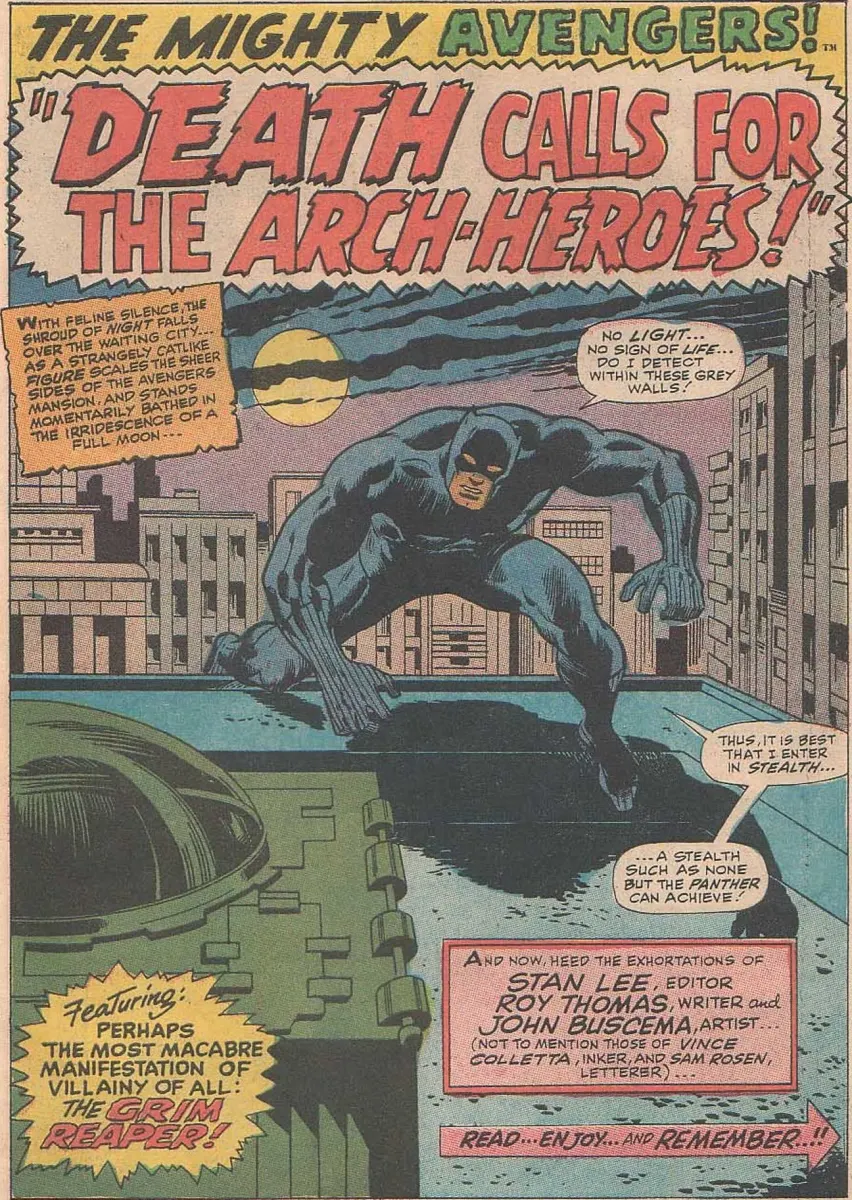Black Panther first appeared in Marvel’s Fantastic Four #52 in July 1966, which means it predates the Black Panther Party, which started in October 1966. Despite that, the connection has always been made, and it has generally been assumed that the character was inspired by the party, not the other way around. This assumption made Marvel kinda skittish back in the day.
From 1966-67, Black Panther was a guest star in Fantastic Four and Tales of Suspense: Captain America. It was for his second appearance in Tales of Suspense that T’Challa was featured on the cover…as “The Panther.” Where’d the “black” go?
In this case, it was still in the issue, as the character continued to be referred to as the Black Panther in the story, just not on the cover. At the end of that story, Captain America recommends T’Challa for the Avengers, which makes him a larger part of the story. That’s when Roy Thomas took over writing T’Challa for the first time.
Suddenly, when T’Challa joins the Avengers for the first time in Avengers #52, he’s taken to calling himself “The Panther.” What’s more? Everyone around him acts as though that’s always been his name! This makes things confusing when, in Avengers #53, T’Challa’s arch-enemy Klaw returns, and remembers him as “Black Panther.”
He stayed Black Panther until 1971, when Marvel did something really stupid. They tried giving him a new name (and a new animal) altogether—“Black Leopard.” This was during a time when the Black Panther Party was really popular, and Marvel wanted to distance themselves from it.
They soon realized that Black Leopard was a stupid name, but I guess they couldn’t come up with a new one, because he just went by T’Challa for a good long while. However, nothing was as good as his original hero name, and so months later, he started calling himself Black Panther again.
It’s funny to think that there was so much controversy over this character’s name being Black Panther, so as not to be considered “too revolutionary.” After all, in 2018 we’ve just had a Black Panther film come out, and its revolutionary nature has helped it break box office records.
Skittishness doesn’t bring about blockbuster success. Being willing to take chances does.
(via CBR.com, image: Marvel)
Want more stories like this? Become a subscriber and support the site!
—The Mary Sue has a strict comment policy that forbids, but is not limited to, personal insults toward anyone, hate speech, and trolling.—









Published: Feb 23, 2018 08:25 am